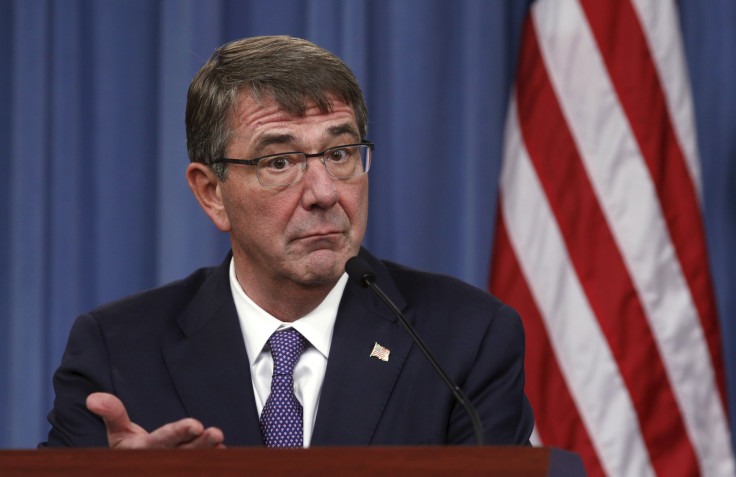The Fight Against ISIS In Iraq: Wider Anti-Islamic State US Role Sought By Ash Carter During Visit To Middle Eastern County

U.S. Secretary of Defense Ash Carter spoke with Iraqi leaders Wednesday about developing a plan to defeat the Islamic State group in the Middle Eastern country. The Pentagon leader attended a meeting with Iraqi Prime Minister Haider al-Abadi aimed at giving the U.S. a widening role in Iraq’s fight against the terror group, also known as ISIS, which currently occupies the cities of Mosul and Ramadi, as well as large areas of land in the north.
Carter’s visit was largely aimed at fulfilling the U.S. administration's wish to accelerate the war against ISIS, despite reluctance from the Iraqi government about allowing the U.S. a greater military role in the country, according to a report Wednesday by the Associated Press.
The U.S. had recently offered Apache helicopters and additional troops to help retake Ramadi and Mosul, where ISIS has a significant presence. However, that request is currently under consideration by Baghdad.
Defense Secretary Ash Carter visits Iraq as ISIS fight intensifies https://t.co/L41iT1jzfw
— FOX & Friends (@foxandfriends) December 16, 2015
"Everything we do...here is subject to the approval of the sovereign Iraqi government," Carter said at the start of the meeting. "And I also wanted to emphasize to you, the respect for sovereignty and for Iraq's territorial sovereignty is a principle that the United States strongly supports in every context."
Iraqi leader Abadi’s reluctance stems from his belief that the country’s military is making good progress against ISIS. "I think we are on the verge of breaking the back of Daesh," he said, using an Arabic acronym for the terror group.
Army Col. Steve Warren, spokesman for the anti-ISIS mission called Operation Inherent Resolve, reiterated Carter’s comments that the Iraqi government would not ask for help as it had to balance military options with the difficult political environment in the country, according to the AP report.
Many Iraqis "don't agree with the American presence in this country," said Warren.
Exact details of the U.S. plan to defeat ISIS in Iraq had not been released, and Pentagon officials have not said what additional assets they want to commit to the mission.
© Copyright IBTimes 2025. All rights reserved.






















